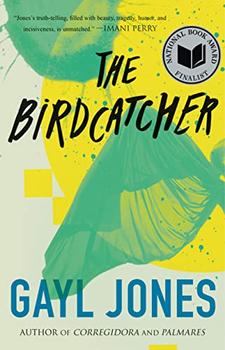Summary | Excerpt | Reviews | Beyond the book | Read-Alikes | Genres & Themes | Author Bio

While the title of the novel gives away the plot, My Sister, the Serial Killer is essentially a character study of its narrator, Korede, a Nigerian woman attempting to simultaneously protect her sister, and protect the world from her sister. The siblings' complicated relationship gradually unfolds over the course of the novel in flashbacks, and a sinister family history is alluded to in a piece of deft symbolism. Korede notes that there is a painting in her home that her father commissioned depicting their house, and she recalls:
As a child I would go stand before it and wish myself inside. I imagined that our alternates were living within its watercolor walls. I dreamt that laughter and love lay beyond the green lawn, inside the white columns and the heavy oak door.
When the novel begins, Korede's beautiful younger sister Ayoola has just killed for the third time, each victim a romantic partner. As the elder sister, Korede feels she is responsible for taking care of Ayoola, and thus keeps her secrets and helps dispose of the bodies. However, when Ayoola sets her sights on Tade, a handsome doctor at the hospital where Korede works, Korede is thrown into a spiral of confused loyalties. Not only is Tade a great doctor and a good person, Korede has feelings for him as well. How can she dissuade Tade from dating Ayoola without giving away Ayoola's secret? How can she convince her selfish, spoiled sister to find a new boyfriend? The tension escalates as Ayoola and Tade grow closer and Korede's tactics continually fail to derail the inevitable collision.
More than anything, this is a book about sibling rivalry, the serial killer situation is merely a device of exaggeration to explore this theme. As the older sister constantly cleaning up her younger, prettier sister's (literal) messes, Korede feels like one of the most aggrieved characters in all of literature. Her feelings of inferiority are often played for comedic effect, as when she declares, "Ayoola looks like a Bratz doll and I resemble a voodoo figurine," but there is a profound sadness and vulnerability at Korede's core that is highlighted just often enough to be deeply affecting. One of these moments occurs as Korede remembers being teased by boys in high school. When Ayoola started at the school two years later, Korede imagined she would have to comfort her sister after she faced similar ridicule, but instead, Ayoola was asked out by a senior on her first day. It was in this moment that Korede first realized she was different from her sister, and the wound is still raw many years later.
As a character study, My Sister, the Serial Killer is captivating. Korede is being squeezed in a vise of uncertainty as her loyalty and morality are put to the ultimate test. However, with so much focus on the narrator, the secondary characters are barely sketched in. This lack of development is particularly discernible with regard to Ayoola. Given no access to her mind or details about her personality, one wonders what makes her tick, and how she feels about the things she has done. Guilty? Justified? Who knows. The sisters' backstory includes a hint at motive, but it would have been nice to know more. Nevertheless, Braithewaite has constructed a taut narrative, rich in psychological intrigue with just enough dark humor to break the tension.
![]() This review was originally published in The BookBrowse Review in January 2019, and has been updated for the
September 2019 edition.
Click here to go to this issue.
This review was originally published in The BookBrowse Review in January 2019, and has been updated for the
September 2019 edition.
Click here to go to this issue.

If you liked My Sister, the Serial Killer, try these:

A Serial Killer's Guide to Marriage
by Asia Mackay
Published 2025
Two former serial killers trying to keep their past buried realize that old habits die hard in this "wildly original, razor-sharp thriller" (Chris Whitaker, New York Times bestselling author of All the Colors of the Dark).

by Gayl Jones
Published 2023
Legendary writer Gayl Jones returns with a stunning new novel about Black American artists in exile.
Your guide toexceptional books
BookBrowse seeks out and recommends the best in contemporary fiction and nonfiction—books that not only engage and entertain but also deepen our understanding of ourselves and the world around us.